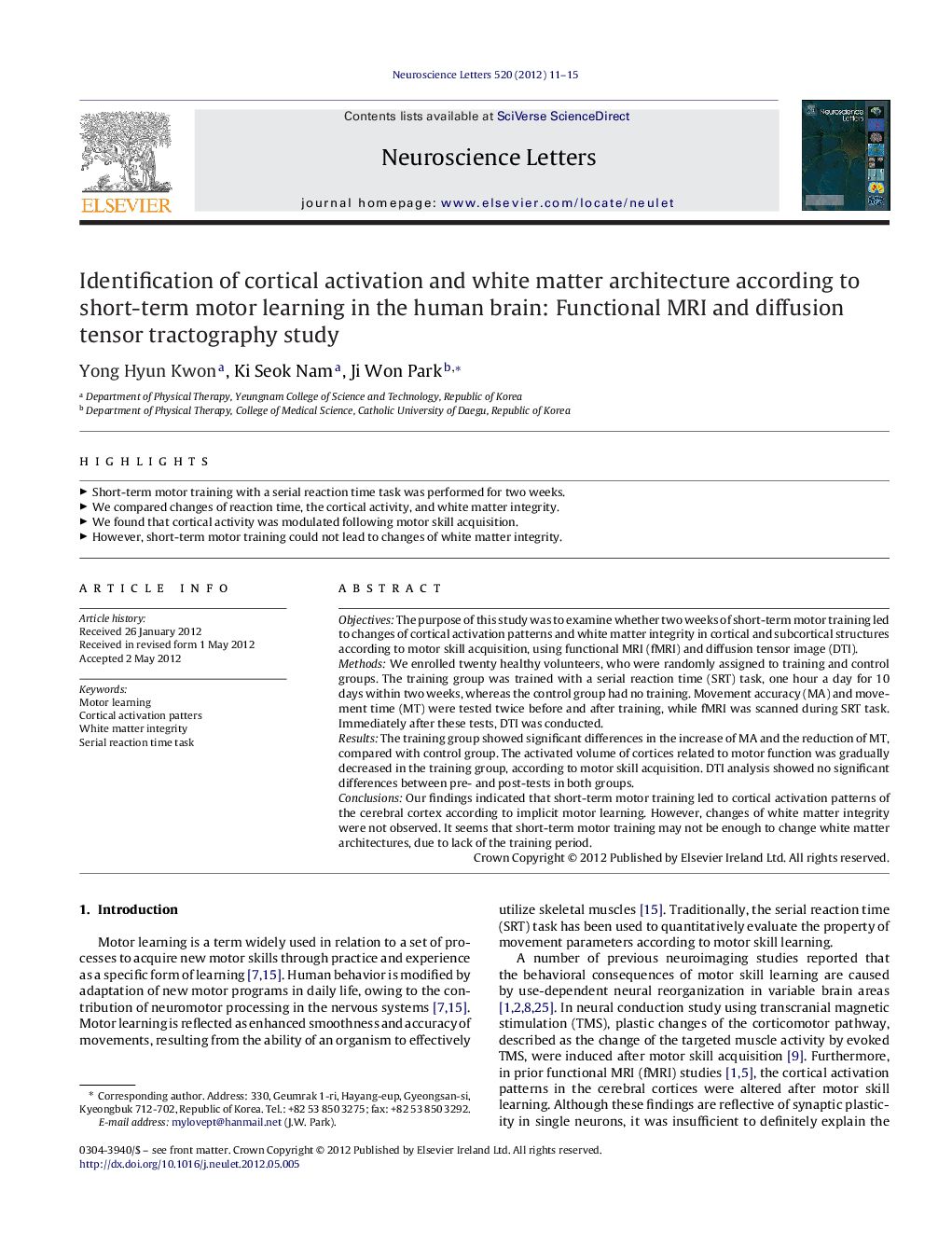| Article ID | Journal | Published Year | Pages | File Type |
|---|---|---|---|---|
| 4344468 | Neuroscience Letters | 2012 | 5 Pages |
ObjectivesThe purpose of this study was to examine whether two weeks of short-term motor training led to changes of cortical activation patterns and white matter integrity in cortical and subcortical structures according to motor skill acquisition, using functional MRI (fMRI) and diffusion tensor image (DTI).MethodsWe enrolled twenty healthy volunteers, who were randomly assigned to training and control groups. The training group was trained with a serial reaction time (SRT) task, one hour a day for 10 days within two weeks, whereas the control group had no training. Movement accuracy (MA) and movement time (MT) were tested twice before and after training, while fMRI was scanned during SRT task. Immediately after these tests, DTI was conducted.ResultsThe training group showed significant differences in the increase of MA and the reduction of MT, compared with control group. The activated volume of cortices related to motor function was gradually decreased in the training group, according to motor skill acquisition. DTI analysis showed no significant differences between pre- and post-tests in both groups.ConclusionsOur findings indicated that short-term motor training led to cortical activation patterns of the cerebral cortex according to implicit motor learning. However, changes of white matter integrity were not observed. It seems that short-term motor training may not be enough to change white matter architectures, due to lack of the training period.
► Short-term motor training with a serial reaction time task was performed for two weeks. ► We compared changes of reaction time, the cortical activity, and white matter integrity. ► We found that cortical activity was modulated following motor skill acquisition. ► However, short-term motor training could not lead to changes of white matter integrity.
